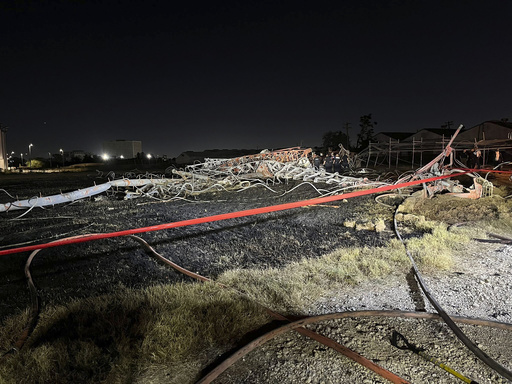HOUSTON — A recent preliminary report from the National Transportation Safety Board has revealed that a helicopter crash in Houston resulted in the deaths of all four individuals on board. The incident occurred when the pilot was in communication with an air traffic controller shortly after takeoff for a sightseeing excursion on October 20.
According to the report, Pilot Samantha Grandbouche was in contact with the air traffic control shortly after her departure. A few minutes into the flight, the controller instructed her to maintain visual separation from another nearby helicopter. However, the transmission abruptly ceased while the pilot was still reviewing the instructions. No further communications were made from the helicopter involved in the crash.
Tragically, the aircraft collided with a radio tower that stands at 1,003 feet (approximately 306 meters), striking it around 100 feet (30 meters) from the top. The impact resulted in a catastrophic explosion, causing both the helicopter and the tower to plummet to the ground. Elements of the helicopter, including the fuselage, became lodged within the structure of the tower.
The crash claimed the lives of Grandbouche, alongside her passengers: Marie Alonso, her ex-husband Julio “Cesar” Lerma, and their young son Dylon Lerma. Footage captured by surveillance cameras showed two of the tower’s three light beacons flashing at the time of the accident, while the visibility of the third beacon was unclear.
SBA Communications, the owner of the radio tower, reported to investigators that there were no outages or malfunctions with the tower during the incident. While the company has been cooperating with the investigation, it did not respond to inquiries for further comments. Prior to the crash, SBA Communications indicated that they had filed a Notice to Air Missions on October 16, which serves to alert pilots of potential flight risks, after acquiring the tower in September.
It’s important to note that the preliminary report does not determine the cause of the crash; a conclusive explanation will be provided later in a final report, which is anticipated to take between 18 to 24 months to complete.


